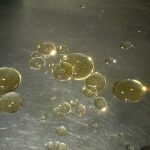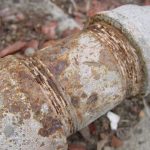Before we know it, spring will arrive and this is when most of us are thankful for the return of warmer weather. Spring is traditionally the time for deeper cleaning and maintenance tasks that prepare our homes for the year ahead. But, people often overlook the needs of their plumbing systems and neglect can lead to an unexpected repair bill. In this article, we will present some ways to prepare your home plumbing system for spring and beyond.
Check for Signs of Leaky Pipes
During the winter months, it can be harder to identify damage caused to plumbing pipes and connected fixtures. This is especially true outdoors where frozen pipes can burst easily when the weather turns warmer. At this time of the year, many people will notice cracks or small water leaks in their pipes that will only worsen over time. If the damage is more extensive, you may notice pools of standing water or even mold growth. This can lead to foul odors and dampness that can spread throughout the home. Water damage is expensive to fix and repairing leaky pipes should be a priority.
Rising Water Bills
Another sign of a water leak is an increase in the volume of water when no major changes have occurred in your home. To check the water consumption, turn off all water using appliances and plumbing fixtures. Check the water meter reading, keep the water off and return to take a second reading an hour later. If you used water during that hour, that is the volume of water you are wasting every hour. Over time, this can really add up and it’s a sure sign that you have a hidden water leak somewhere in your home. Contact your local professional plumber, they have the experience and specialized tools to locate and fix the leak for you.
Slow Running Drains
During the holiday season, we tend to entertain more and visitors can create extra work for your home plumbing system. Those additional showers, the food prep, and an increased level of water drainage take a toll. This is especially true if you have no drain covers installed and hard water. One of the more annoying characteristics of hard water minerals is that they inhibit the formation of soap suds, but they do create soap scum. This sticky material enters the drain and other materials such as food waste, hair, and more may cause a drain clog that grows over time. Eventually, this drain clog may fill the entire diameter of the drain line which slows and then prevents draining. Smaller clogs can be removed with a cup plunger, a plumbing snake (augur), or a homemade drain cleaner. Chemical drain cleaners should be avoided because they damage the pipes. If you have a persistent clog that you cannot remove, contact your local plumber. There may be an underlying issue that causes the clog to return regularly and this must be fixed to prevent further problems.
If you want to get your plumbing system ready for spring and beyond, contact your local professional plumber and schedule a health check today.





